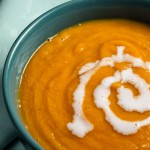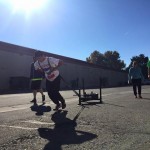Is Breakfast Important?
When you hear about a new peer-reviewed scientific study, do you feel validated or skeptical?
We hear about them all the time: Scientific studies offering up some bold new claim about weight loss or the importance of exercise, or about dangerous carcinogens, or ways to cure diabetes.
When you hear about, or read about, a new study, what’s your general reaction? Skepticism? Validation?
I recently came across two new health-related studies. One caused me skepticism, while the other made sense to me and validated my current beliefs.
An interesting note about studies is that they are often molded to fit the beliefs of the outlet sharing it and two different people reading one study can have wildly different conclusions about that particular study. So we should never take one particular viewpoint to be an absolute truth. Plus science doesn’t work that way anyway.
What are your opinions about the two claims below?
1. To eat breakfast, or not to eat breakfast?
People ask me all the time whether or not they should eat breakfast before a morning workout and everyone has a differing opinion about what is correct to eat, in what amounts to eat and what works and what doesn’t.
Truthfully, there is no one size fits all prescription for breakfast. Will it help most people feel energized and ready for the day? Most likely, yes. But what if that meal is composed of pancakes smothered in surgery syrup and a cup of surgery orange juice? If this is the case then we have to do a cost benefit analysis as to whether that meal is going to do more harm than good, because the saying “anything is better than nothing” won’t work here as we are setting ourselves up for a sugar crash later in the day with this style of eating.
The other thing we have to worry about is long term effects of this type of eating. In simple terms your body needs a large source of its energy from carbohydrates, but if that source if from high sugar foods then your body will lose the ability to regulate that energy source and the resulting effects are type II Diabetes.
Now if you would like to enjoy a good breakfast that will set you up for success the rest of the day I would try and consume the following:
- Eggs (I personally don’t like eggs all that much, but always include a protein source like the always delicious Tri-Tip)
- Veggies (my favorites are squash, mushrooms and asparagus)
- Fruits (Berries and Melon are my favorites)
- Avocado slices (find a good source of fat if you don’t like Avocado)
When looking at how your plate should be organized it should be organized in the following way:
- Your protein should be the size of your palm
- Veggies should take up half your plate
- Stick to a small handful of fruit
- Add in fats once all this is taken care of
Now if you don’t wake up hungry, don’t feel like you need to force feed yourself and just plan for a meal whenever you feel hungry. You’ll start to get an idea of when you will start getting hungry if you pay attention to it every day. Once you figure that out you plan for it. The hunger and thirst mechanisms in our bodies kick in when we need fuel and are very efficient of notifying us when it’s necessary.
In light of this, when people ask me my opinion, I tell them they should experiment with what feels right for them for a couple of weeks, write everything down and then we can go over what they need specifically together and outline what makes sense and what doesn’t. This is called organizing and creating a plan of action. We will continue to do this over time as well to be able to monitor progress and adjust for and roadblocks we encounter.
In the case of breakfast research, though, you’ll find scientists go back and forth on the issue all the time. There are many many studies to support both sides of the argument.
However, new research from the University of Texas at Austin suggests breakfast IS critical.
In this article, professor John L. Ivy argues: “Breakfast immediately raises the body’s energy level and restores the blood glucose level to normal after an overnight fast. It also raises the muscle and liver glycogen stores.” Because of this, don’t skip breakfast, he says.
Your thoughts? How many of you eat breakfast the moment, or within 30 minutes, or waking up in the morning?
2. Type 2 diabetic? Add a good diet and a nightly walk to your fitness routine!
What’s more important for controlling diabetes? Diet or exercise?
I suspect most people would say diet. In reality it’s most often both that are critical to management and treatment and one without the other won’t work at an optimal level. The tough part about this is that diet is often the hardest piece to tackle so a good starting point might just be a nightly walk.
In fact new research suggests that exercise may play a bigger role in managing diabetes than we might have expected. For the record, nearly 10 percent of the American population is a Type 2 diabetic. Yikes.
The study was conducted in New Zealand found that 10 minutes of walking after dinner in the evening brought blood sugar levels down by 22 percent.
Similarly, in a separate study in the UK, researchers analyzed the results from 28 different studies and discovered the more exercise people did, the lower their risk of developing Type 2 diabetes became. Further, those who doubled their fitness routine to 5 hours a week, up from 2.5, reduced their risk of developing diabetes by as much as 36 percent. This is because they believe exercise helps your cells and muscles use sugar more effectively.
Do you believe an evening stroll can be that powerful for your health?







